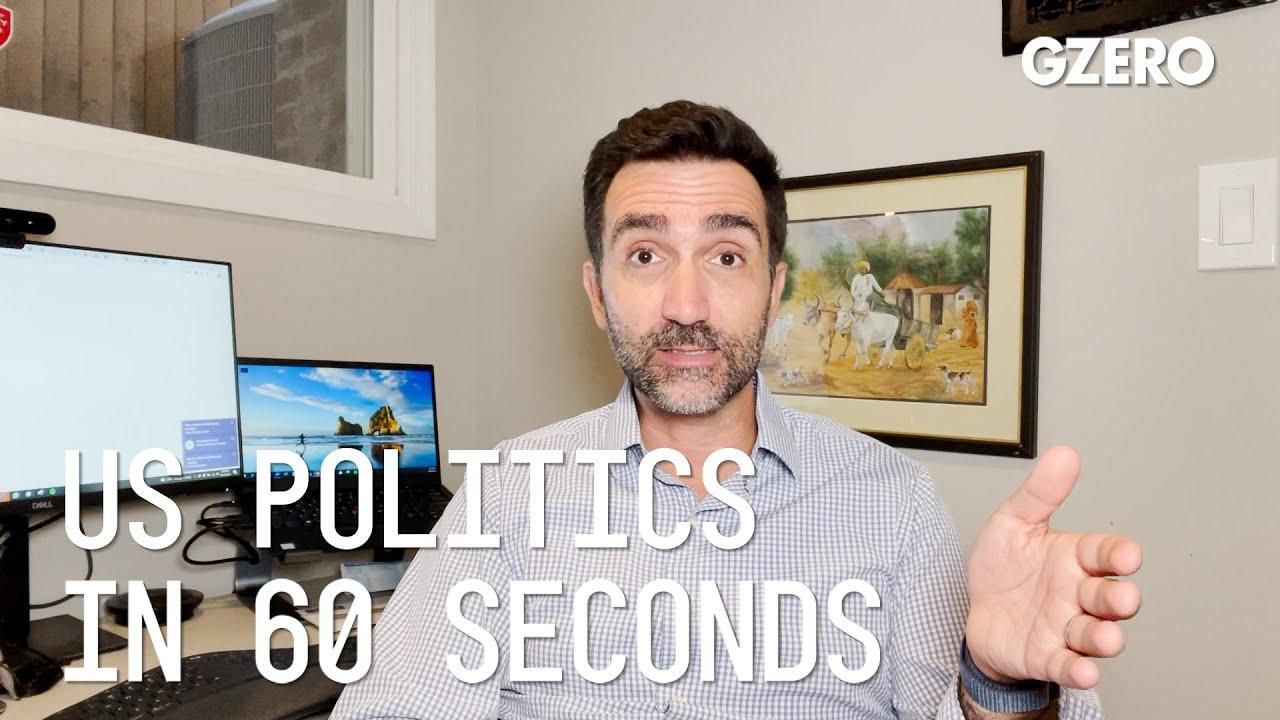US Politics In 60 Seconds
From $3.5 trillion to $2 trillion: Cuts to US spending bill mean less money for families

Congressional spending cuts | US Politics :60 | GZERO Media

Jon Lieber, head of Eurasia Group's coverage of political and policy developments in Washington, shares insights on US politics:
What does it actually mean to cut $1 trillion from the Democrats' $3.5 trillion social spending bill?
President Biden has proposed one of the most ambitious expansions of federal spending in recent memory. If he gets everything he wants, it would probably be the largest expansion of government since the Great Society, but he's not going to get everything he wants. Democrats have basically said they cannot do all $3.5 trillion in spending. They're probably going to end up around $2 trillion. So what gets cut? Well, we don't know yet. There's kind of two ways to go about this. They could either cut the number of programs that have been proposed, doing fewer things with more money on a permanent basis, or they could try to do more things, each program getting less money and potentially doing them on a temporary basis. So, a future Congress would have to extend it. What does this mean for you? Well, a lot of the money in here is designed to go directly to families, either in the form of cash payments, through the tax code, the Child Tax Credit and the Earned Income Tax Credit, or subsidies for things like child care, early childhood education, and community college. And if you cut these things back, it means less money is going to go out the door to the American people. It also means less tax increases to finance it. So the implications of what's being proposed could actually end up being a big deal for a lot of Americans who would qualify for benefits under these new programs.
More American law enforcement officers have died from COVID-19 than from other work-related causes. What is happening to them?
It turns out police officers really reflect the rest of society. They tend to be a little bit more conservative than the general population, and they read the same misinformation about the coronavirus vaccine that the rest of us do. So what you've seen, as you've seen in the case of other unions and other workforces that have tried to mandate vaccines and force their workers to protect themselves against the coronavirus, is some resistance on the part of police officers, who also happen to be in a dangerous line of work. There've been many stories of unionized workforces resisting vaccine mandates. The New York teachers union protested the mandate to the mayor a couple of weeks ago. There were rumors that a slowdown among Southwest pilots that happened last weekend was related to the vaccine mandates. Although those rumors have generally been unfounded, and could have more to do with the way that Southwest manages its airline fleet. However, this is a really common theme and it's going to continue to be common as individuals push back against these mandates, putting themselves at risk of catching the coronavirus.
Mastercard Economic Institute's Outlook 2026 explores the forces redefining global business. Tariffs, technology, and transformation define an adaptive economy for the year ahead. Expect moderate growth amid easing inflation, evolving fiscal policies, and rapid AI adoption, driving productivity. Digital transformation for SMEs and shifts in trade and consumer behavior will shape strategies worldwide. Stay ahead with insights to help navigate complexity and seize emerging opportunities. Learn more here.
Despite a ceasefire in Gaza, Israel is still not letting foreign journalists in to independently verify what’s happening on the ground, CNN’s Clarissa Ward tells Ian Bremmer on GZERO World.
On Ask Ian, Ian Bremmer breaks down the steady escalation of US pressure on Venezuela and why direct military action is now a real possibility.
From civil conflicts to trade wars to the rise of new technologies, GZERO runs through the stories that have shaped this year in geopolitics.